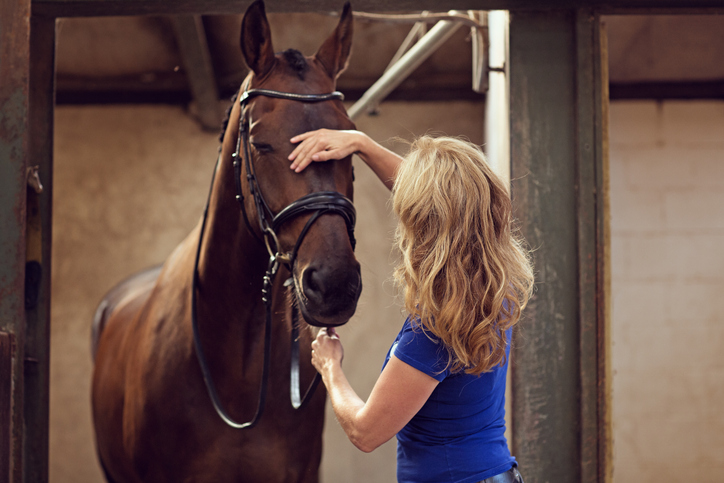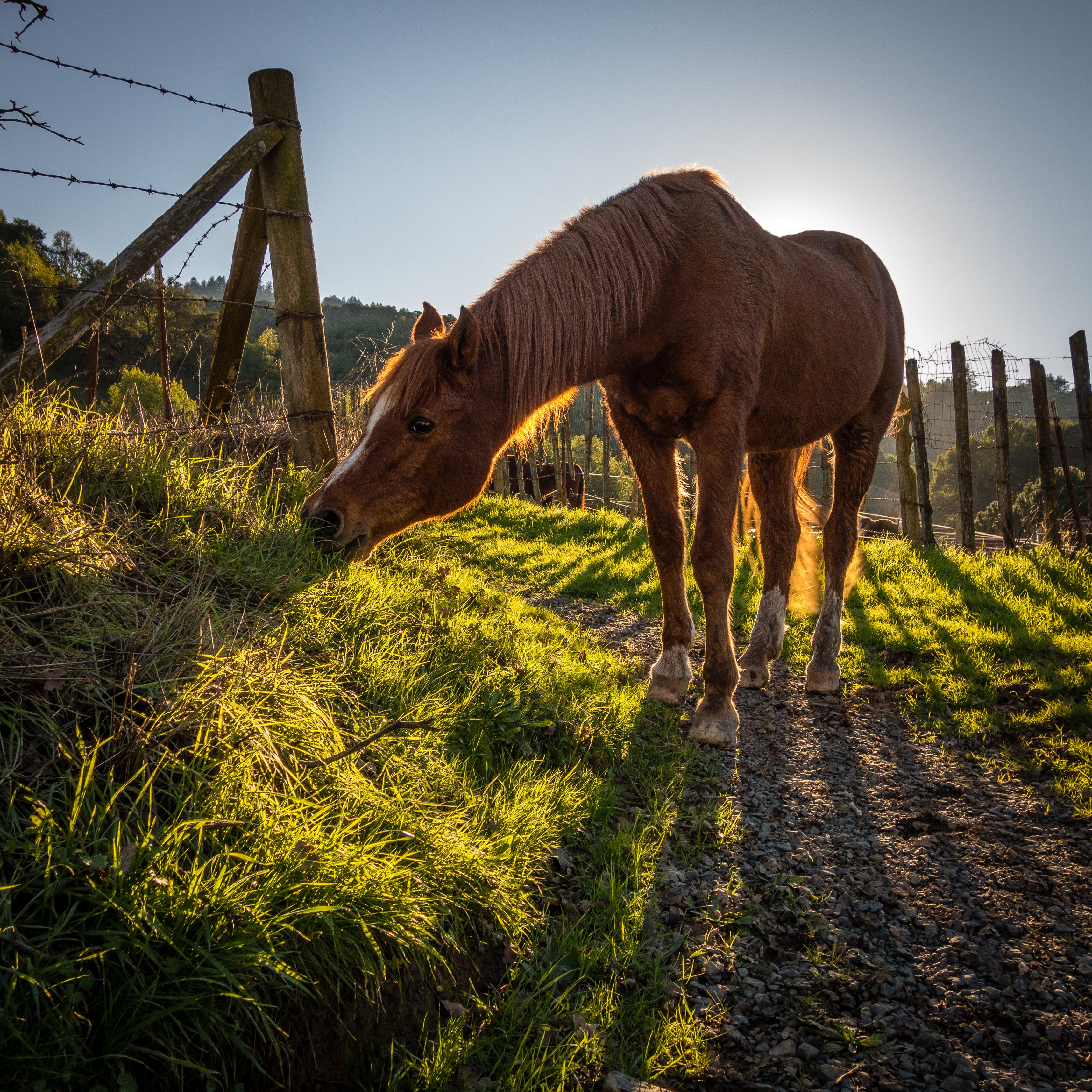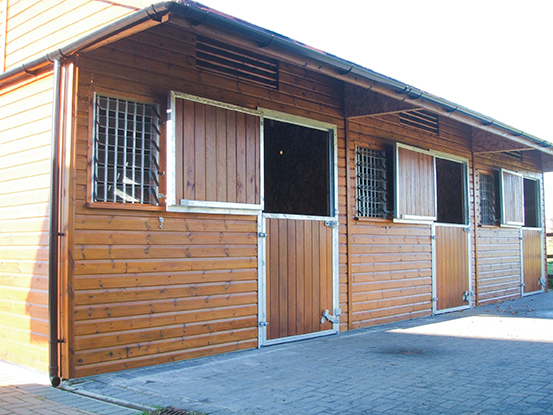These internal parasites can do irreversible damage to the gut and other organs and be responsible for poor body condition, colic and, in serious cases, fatalities.
Implementing an effective worm control will help prevent worms from completing their life cycle and thus prevent further pasture contamination. While it is in your horses’ best interest to be wormed regularly, it is extremely important to use the right dosage at the right time to prevent resistance to the medicine.
‘Using too low a dose of wormer may speed up the development of resistance. On the other hand, frequent, unnecessary worming may also increase the potential for development of resistance. The key to reducing the likelihood of resistance is choosing the right wormer, then giving it at the correct dose and time.’ – The British Horse Society
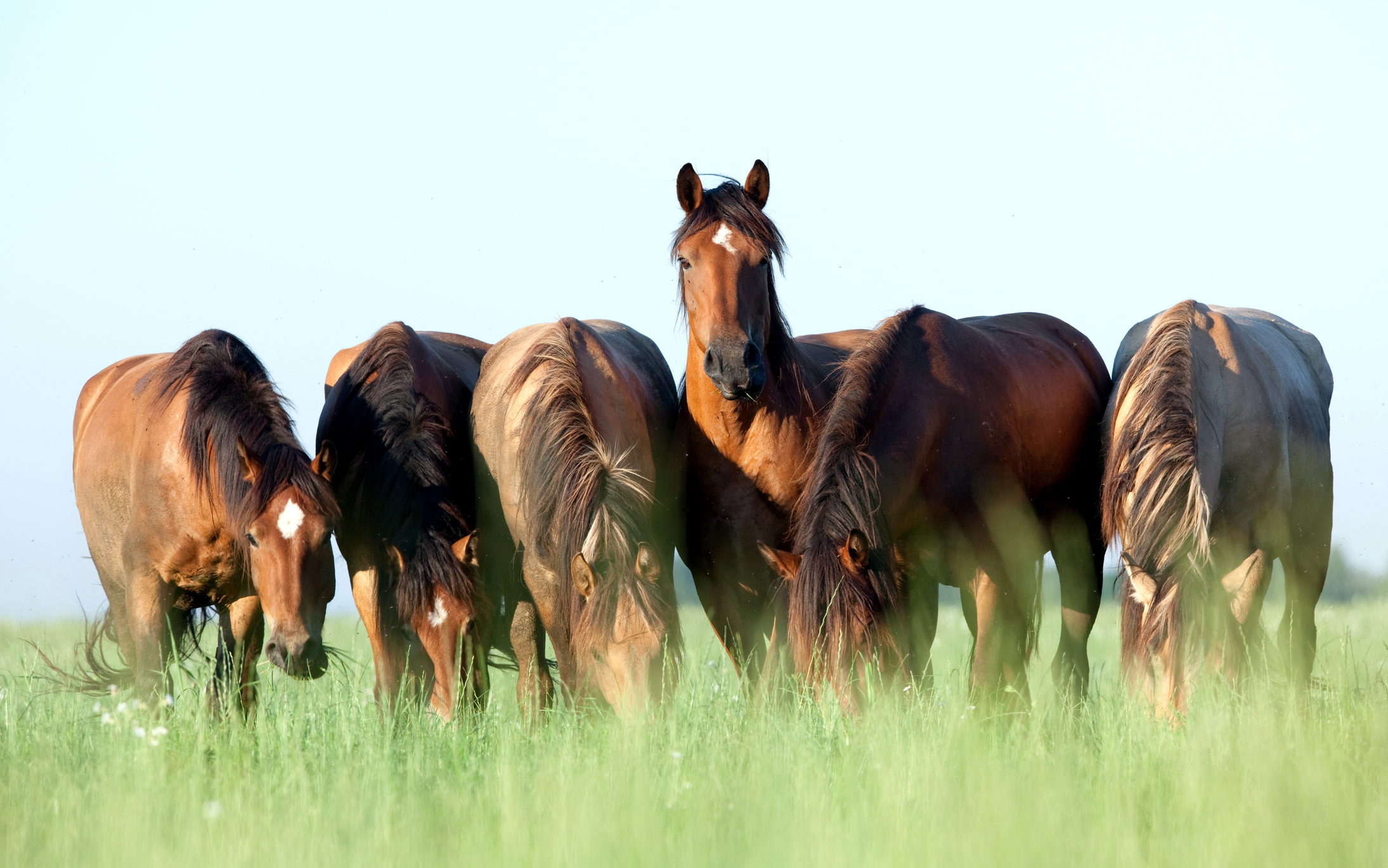
Pasture Management
Aside from worming, there are general things in your pasture management that all horse owners can do to reduce the number of worm eggs in your equine environment.
- Do not use horse manure as a fertilizer in your equine pastures to prevent the spread of parasites in the grass that your horses graze on.
- Aim to remove droppings from pastures twice a week to remove the source of new worm eggs and develop latrine areas.
- Do not overstock pastures. 1-1.5 acres per horse or two horses per hectare on permanent grazing. Overstocked pastures result in a higher level of manure, raising the chance of infection. Overstocked pastures will also become overgrazed, and a horse may be inclined to graze closer to droppings than normal, again raising the risk of infection.
- If possible, let cattle and sheep graze with your horses. They will happily graze on the grass that your horses won’t (latrine areas) and in the process will digest equine worm larvae which don’t survive in cattle or sheep. However, always be sure your cattle and sheep are on their own worming sequence.
- Harrowing rested pastures in dry conditions will expose the larvae allowing them to dry out and die.
- With horses that are on the same worm control strategy, subdivide the grazing pastures into smaller paddocks, rotating the horses around in regular intervals.
- Once horses have been wormed, move them to a new pasture immediately.
- Allowing pastures to rest from late summer to early spring will give the winter weather a chance to kill off the majority of the larvae.
When and how should you worm?
In the equestrian world, there are a few generally accepted ways to treat your horse for worms. One way is through set interval treatments throughout the year. For example, in spring and autumn, your wormer will target routine worms and tapeworms. In summer your wormer will target routine worms. For winter, your wormers should treat routine worms and bots, and if needed also treat for encysted small redworms.
You can also treat your horse strategically based on the seasonality of worms. For example, dosing 3 times a year (once in spring, summer, and autumn), should be effective at reducing infection levels. However, this is based on the seasons turning at the same time every year, and the weather staying the same in each season (i.e. a wet summer would need a different treatment than normal).
Saving the best and most effective for last, you can target strategic dosing based on worm egg counts. By performing a worm egg count every 8-10 weeks, you can know exactly when you should administer a wormer. Once the egg count is over 200epg a wormer is required. If this is the method you choose, tapeworm treatments still need to be carried out every spring and autumn.
Always consult your vet on when/where/how/what wormer you should be using.
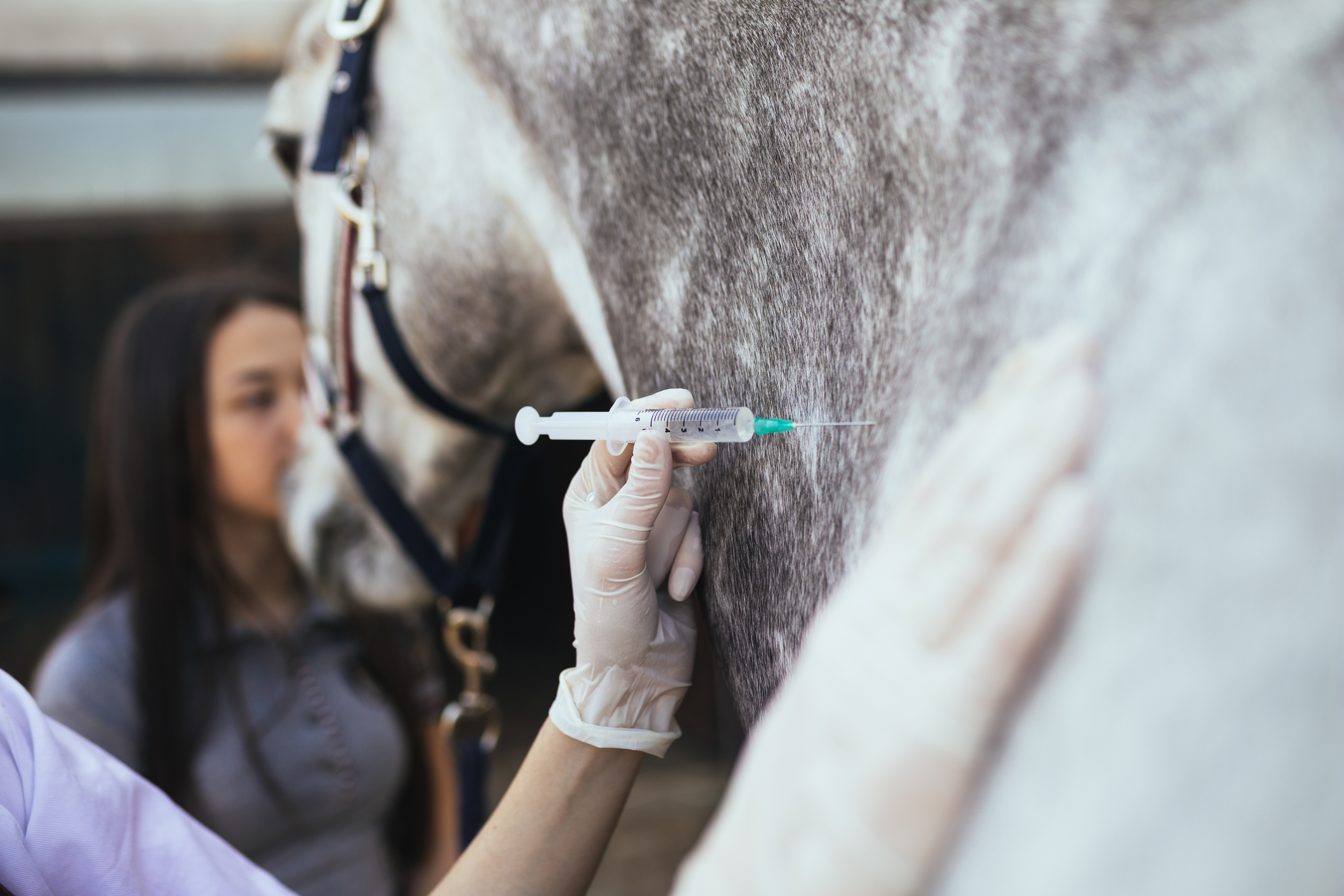
‘All grazing horses are likely to have worms, but most horses have a low number which have no untoward effects and may do no harm. Problems arise if worm burdens increase, which is when the worms can cause disease such as weight loss, colic and diarrhoea. In some cases, heavy worm burdens can be fatal. So it is important to control the numbers of worms in our horses.’ – Bell Equine Veterinary Clinic
General Worming Plan for Adult Horses (VioVet):
Autumn (Sept-Oct): Worm for tapeworm with Praziquantel or an elevated dose of Pyrantel.
Winter (Nov-Feb): Target encysted larval stages of small redworm with a Moxidectin product. This will also kill botfly larvae. Alternatively, use an elevated dose of Fenbendazole but this will not target any botfly larvae.
Spring (Mar-Apr): Target tapeworm with a Praziquantel product or use an elevated dose of Pyrantel. If your horse needs worming for roundworm too, then a combination wormer is ideal.
Summer (May-Aug): Carry out FEC and worm if necessary with Fenbendazole or Pyrantel.
